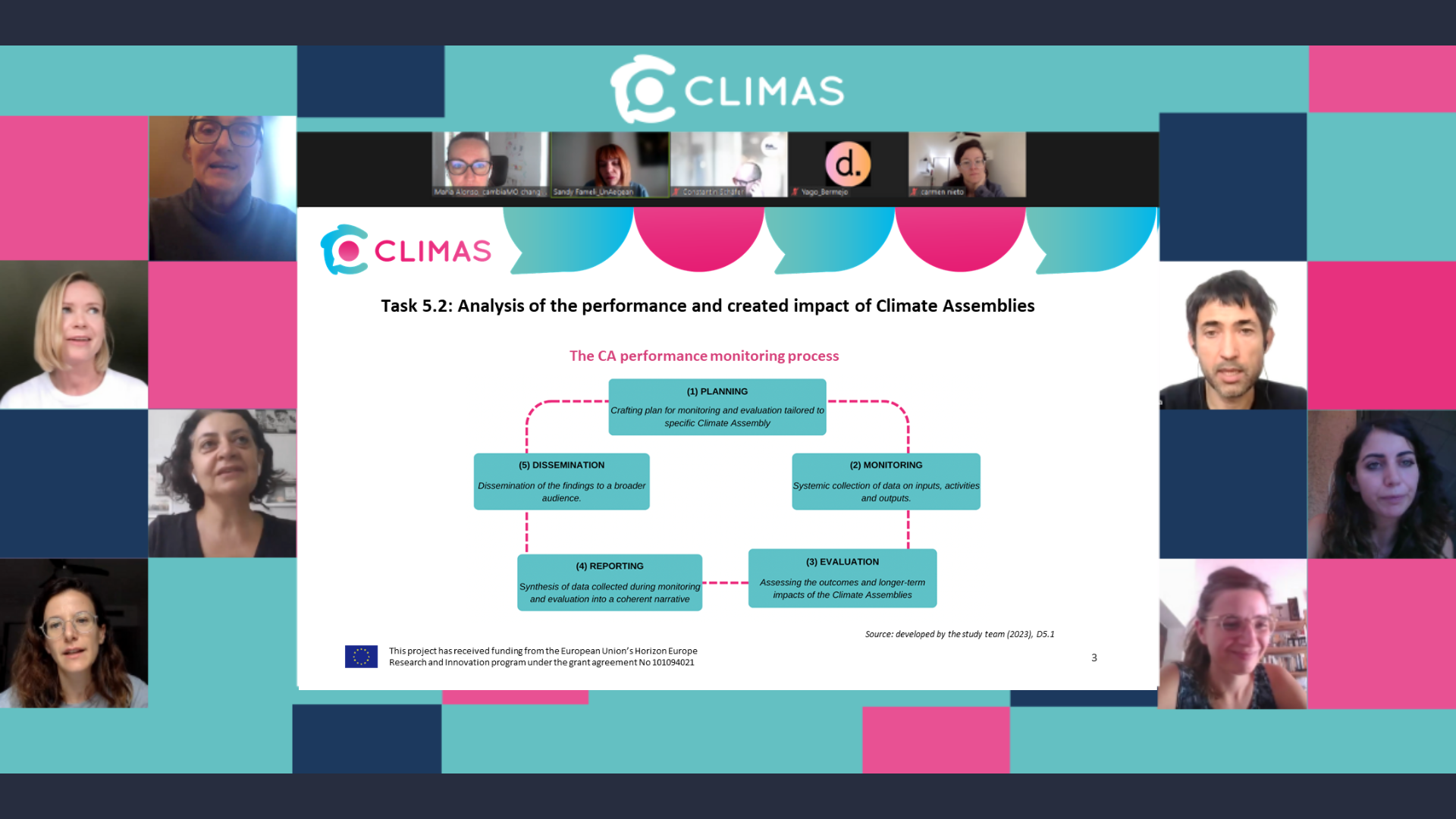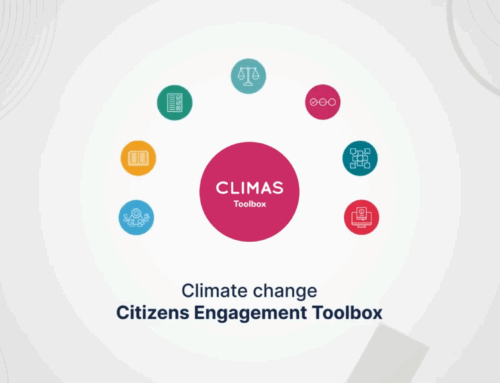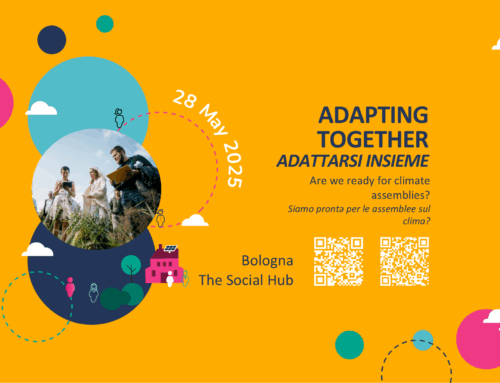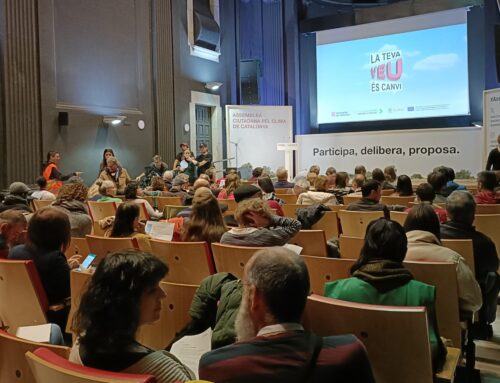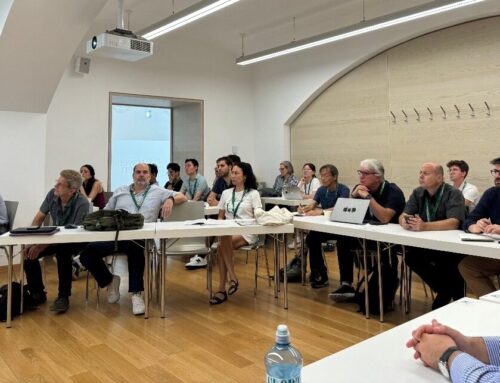Climate Assemblies and Living Labs cross-exchange in CLIMAS started in 2023 as internal knowledge sharing sessions. Despite the detailed research plan and structured project methodology, partners organising Climate Assemblies and partners supporting with co-creation in Living Labs decided to meet on a monthly basis to create an open and informal opportunity to share direct experiences and swiflty adapt their activity planning.
What are these meetings about and what need do they address?
Already during our first General Assembly in Vilnius the need for mutual understanding emerged among Living Labs and Climate Assemblies involved in the project. The main requirement was to set-up periodic meetings in which internal knowledge sharing could happen directly and informally, while project methodologies and tools development ran in parallel. Such cross-exchange should help Consortium members familiarise with the relevant aspects that have to be considered when organising a citizens’ assembly and ensure that living labs can actually focus on the actual needs of the organisation and facilitation teams when co-creating CLIMAS’ tools.
In short:
How to ensure methods and tools’ adoption
- Participants expressed interest in testing various project tools, including the scenario building and value-based/dilemma setting tools.
- Discussions focused on adapting these tools to different contexts and LLs, emphasizing the importance of clear communication, flexibility, and collaboration.
Sharing Experiences and Best Practices:
- Representatives from different LLs and CAs could share their experiences, showcasing citizen science applications, stakeholder involvement strategies, and summer schools on sustainability.
- Challenges included securing political buy-in, managing resources, selecting stakeholders, and simplifying methodologies. Lessons learned could highlight the value of transparency, adaptation, and knowledge sharing.
In the following paragraph insights from past meetings are summarised.
Key takeaways from meetings | September 2023 to February 2024
September, 2023:
-
The first meeting aimed at clarifying how Climate Assemblies can identify value-based dilemmas. Aegean partners presented the example of two dilemmas for the Chios Assembly: Dilemma 1 “Tourism vs. agriculture”; Dilemma 2 “Aquaculture vs. marine environment protection”. The discussion focused on the criteria for selecting dilemmas, the relevance of each question to the local context and on the ability to generate constructive debates. Finally the possibility of finding concrete solutions and gathering open and voluntary feedback from participants on the proposed dilemmas was left as an open point to discuss.
October, 2023:
-
During this meeting, after a presentation of the progress of the different work packages of the project, the preliminary results of the research conducted were presented and the direct experiences shared among project partners. Some time was also dedicated to the identification of synergies and collaboration opportunities, in which both Living Labs and Climate Assemblies could participate jointly.
November, 2023:
- During this meeting each Climate Assembly group presented its progress:
- The Chios Assembly will focus on two dilemmas: tourism vs. agriculture and aquaculture vs. marine environment protection.
- The Tallinn Assembly was successful in engaging citizens and generating constructive debate, yet specific dates have not been decided yet.
- The Barcelona Assembly is entering the event logistic phase, with discussions ongoing about costs, resources, materials, and evaluation process.
December 2023:
- Participants discussed which tools to test in each different Living Lab, emphasizing the need for context-specific considerations. Partners underline the importance of citizen science projects and value-based approaches, along with the need for clear communication and accessibility.
January, 2024:
- Discussions focused on lessons learnt from the ongoing Climate Assembly in Catalonia, including managing diverging opinions through effective facilitation, stakeholder engagement, and potential for citizen science tool testing. Once again the importance and tangible impact of inclusivity and accessibility approaches in testing tools and gathering citizen feedback was emphasized.
February, 2024:
- This last meeting has been more intense than previous one, due to the large amount of mutual interest of participants in sharing insights from the Catalan Climate Assembly and the possibility of testing the citizen science tool with the organisers team, considering ethical considerations and budgetary limitations. The group also reported on how the CA methodology chapter on implementation could be better structured, informed by experiences in Catalonia. Further collaboration opportunities between CAs and LLs were discussed, including potential areas of synergy and knowledge sharing. The core part of the meeting was then dedicated to elaborate on the importance of managing expectations regarding the application of recommendations from CAs on the side of local and regional policy makers, considering long-term planning processes and the need of involving various institutional stakeholders. Also, the importance of considering National Adaptation Plans (NAPs) and local adaptation policies in tool development was highlighted. Finally, short updates on upcoming activities were shared: an upcoming meeting with Edermunde to discuss their CA plans and potential tool usage is confirmed; the Chios Living Lab activity plan was presented, including citizen science and scenario building tool testing workshop, and potential involvement in scenario prioritisation and other tools co-creation. A timeline for CA monitoring and evaluation was discussed, with a call for input from all CAs.
Next Steps:
- Project partners will continue developing and testing tools and methodologies, additional Living Lab meetings will be organized in different locations and findings from CLIMAS’ Climate Assemblies and Living Labs will inform future climate change adaptation strategies.
Here below a quote from Maria Alonso Raposo, cambiaMO:
“Such discussions not initially planned emphasize the collaborative spirit and ongoing efforts among CLIMAS Consortium members and across deliberative democracy projects to develop and implement effective tools and strategies for climate change adaptation, with a focus on citizen engagement and knowledge sharing”
Follow us on LinkedIn, and Twitter, or subscribe to the newsletter to stay updated with the latest activities!
